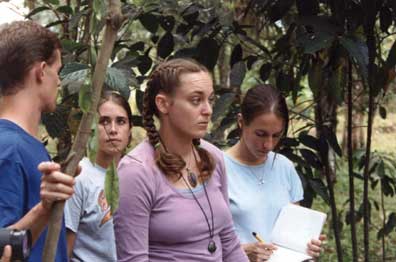
Times, expectations have changed by Stephen Kosnar
Times, expectations have changed
This is not your father's and mother’s Peace Corps
By Stephen Kosnar
If the Peace Corps is guilty of anything, it is not gross negligence concerning volunteer security or failing to inform volunteers of country conditions. But it does lack a policy or readiness to meet the growing expectations of 21st century volunteers and their families.
In his 1961 inaugural address, President John F. Kennedy planted the seed for the Peace Corps: “To those people in the huts and villages of half the globe struggling to break the bonds of mass misery, we pledge our best efforts to help them help themselves. . . .”
It is hard to imagine JFK envisioning a time like today when volunteers pursue this goal while talking to family by cell phone or asking for subsistence allowance increases to help cover work-related Internet expenses. This is not your father's and mother’s Peace Corps.
When I asked a recent country director of Togo, who had served in the Peace Corps in the ’70s, what the biggest difference is between then and now, he responded, “Today there is a sense of entitlement by the volunteers, and the parents expect us to know where their sons and daughters are at all times.”
Today’s parents, for better or worse, have access to information on country conditions through 24-hour news stations and the Internet, he said. They have expectations of e-mail or phone calls from their sons and daughters; and, if there is a sign of trouble, they immediately want a response.
“Within five years, all volunteers will be wearing tracking bracelets,” the country director added, shaking his head.
I don’t see this happening, but the thought shows a line of thinking, albeit eerie, driven by demand.
Immediate access to information can also have positive effects. Volunteers today allay parents’ fears by writing electronic journals. The journals, read instantly from homes thousands of miles away, often ease concerns about health, safety or community acceptance. They also serve as powerful public-relations mes- sages.
E-mails get forwarded to relatives and friends who learn information about countries that they very well may not have been able to identify on a map before opening their in boxes.
Volunteer expectations have also evolved. In Togo, when medical supply requests for Dial soap became exorbitant, the medical officer had to send out a memo telling volunteers they could only request one bar per month. The soap, originally intended for volunteers who had reactions to local soaps, is preferred over perfumed soaps found in villages and towns. As I read the memo, I thought to myself, who joins the Peace Corps thinking they are going to get Dial soap?
Early volunteers in Togo lived with arduous travel conditions. A volunteer who served in the first group of volunteers sent to Togo in 1962, explained that the road to the northernmost region washed out during rainy season.
“Those volunteers were cut off from the rest of us for the entire rainy season (a five- to six-month period).” Phone lines didn’t exist up country, and by the time a volunteer wrote a letter explaining a condition and waited for it to arrive at the medical office, not to mention the response to make the return trip, it could be too late. So volunteers often self-medicated.
I say this not to suggest volunteers today (I was one of them) make any less impact on their communities, but to show the changing times and expectations.
In one of the Dayton Daily News stories, U.S. Ambassador Tony Hall, a former volunteer, stated, “You’ve got to go into the Peace Corps with your eyes open.”
The phrase captures an attitude of a previous generation that reflected their not knowing what to expect and an eagerness for that unknown. I believe many — though certainly not all — of today’s volunteers have one eye open. The other is often shut with the expectation that the administration will take care of all their needs and have the prescience to foresee any problems.
The current challenge for the Peace Corps is not to create a “risk-free” environment, but to create a situation for volunteers where their idealism and energy can be released because volunteer and family expectations are both realistic and addressed.
Stephen Kosnar was a Peace Corps volunteer in Togo from 2000-2002. He lives in Carrboro, N.C.
[From the Dayton Daily News: 11.05.2003]
